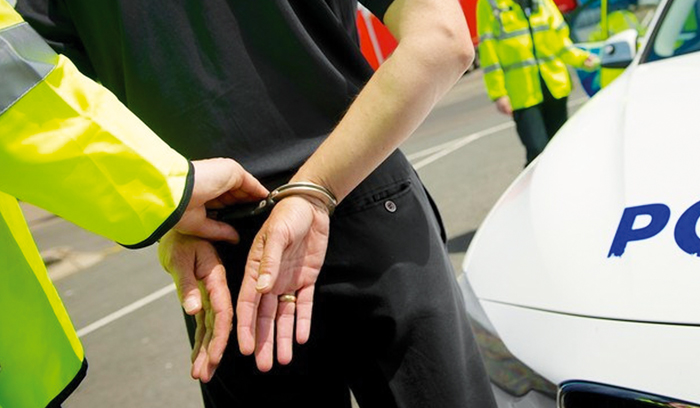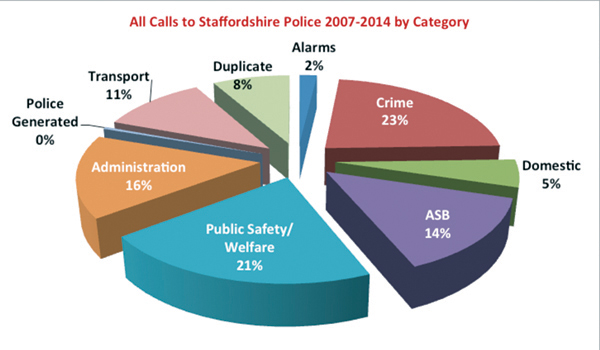Balancing act
It’s all too easy to criticise the policing of the lockdown, but officers are having to walk a tightrope says Harvey Redgrave.
The coronavirus lockdown is throwing up all sorts of challenges for our public services, and policing is no exception. As the coercive arm of the State, officers are being asked by governments all over the world to enforce unprecedented restrictions on our liberty, while retaining public consent.
You could be forgiven for thinking that the police are currently failing to get the balance right.
Over the past fortnight, the internet has seemingly been awash with videos of overzealous officers shouting in people’s faces during the Easter Bank Holiday and commentators and politicians have criticised suggestions by some forces that the police could or should be searching shoppers’ trolleys for ‘non-essential’ items. Some have suggested that the police are practicing a form of hypocrisy – threatening individuals who are not breaking the law, while failing themselves to adhere to social distancing rules.
Last week, the commissioner of the Metropolitan Police Service came under fire for taking part in an organised ‘clap for carers’ on Waterloo Bridge.
But before we all get on our bandwagons to criticise the police, it is worth stepping back to consider the challenges they face.
In particular, the rules governing our (newly restricted) lives have not always been clearly articulated by the Government. To give one example, the Prime Minister set out in his address to the nation on March 24 a number of ‘limited criteria’ considered legitimate for members of the public to leave their homes: to carry out essential work, shop for essential items or medicines or one form of exercise a day. But the Government’s emergency legislation says nothing about the number of times it is permissible for people to leave their homes. Even if this was written into law, it is completely implausible that the police would ever be able to enforce such a rule.
There has been much mockery of newly published police guidance, which attempts to help officers answer some of these questions, but the lack of clarity from ministers means the police have had little choice but to try to fill in the gaps themselves.
In Britain we are (rightly) proud that, unlike some of our continental neighbours, ‘consent’ is at the heart of the policing model. But that consent relies on both sides being informed about the rules of the game. The current lack of clarity – both about the rules themselves, and about how to enforce them – not only makes policing uniquely challenging, but risks doing permanent damage to the relationship between police and the public. They have arguably never had to operate in such a grey area before.
This is exacerbated by the fact that policing decisions are largely devolved across 43 forces, opening up the potential for inconsistency in how the rules are interpreted and enforced. Policing leaders are all too aware of these risks, hence the determination from the National Police Chiefs’ Council (NPCC) to uphold the principle of consent and issue guidance.
And the fact is that – despite these challenges – it appears that the police are managing to maintain public consent.
Over the past fortnight, polls have been conducted by YouGov asking the public what they thought of the approach the police were taking to handling the lockdown. In both surveys, more than a third (36 per cent and 42 per cent respectively) fully supported the police approach, while a further third (33 per cent and 32 per cent respectively) supported the police but thought officers had gone too far in some cases. Notably, the proportion of the public which believed the police were too heavy-handed had not increased and remained low, at six per cent. And the proportion who believed the police should take tougher action has risen (marginally) from 14 per cent to 16 per cent.
There remains evidence that the police should not take public support for granted, particularly in London, where 42 per cent of people believe police have gone too far in some cases (around ten percentage points more than in other parts of the country). But overall, chief constables and police and crime commissioners should take heart from the findings, which appear to vindicate the ‘engage, explain, encourage and enforce’ approach set out by the NPCC and reinforced by new guidance issued a week ago.
Looking further ahead, it will be interesting to see if public support holds up as restrictions continue into the summer. The lockdown is barely four weeks old and the longer it continues and evolves the harder it will be to enforce.
In particular, there will be nervousness about how the public will react to enforcement of a variable lockdown, in which certain sections of the population, or particular parts of the country, are subjected to tighter or looser restrictions. The grey areas that are so dangerous for a model which relies on consent will get greyer. There are already signs of the beginnings of civil unrest in parts of Southern Italy and some US states.
We remain very fortunate in the UK that policing has widespread legitimacy and that trust in police officers remains relatively high, at 75 per cent. The current pandemic is likely to put that to the test – straining the relationship between the public and the police.
As the Tony Blair Institute argued in its paper last week, it is critical that we start talking now about the implications of a staged set of lockdown measures and the triggers for them. Government needs to take the weight off the police by leaning much more on open communication, clear rules and building public consent. Well-specified rules will, in turn, reduce ambiguity and take the pressure off the police. If not, we risk doing permanent damage to the British policing model.
Harvey Redgrave is a senior fellow at the Tony Blair Institute for Global Change and Chief Executive Officer of criminal justice consultancy Crest Advisory.





